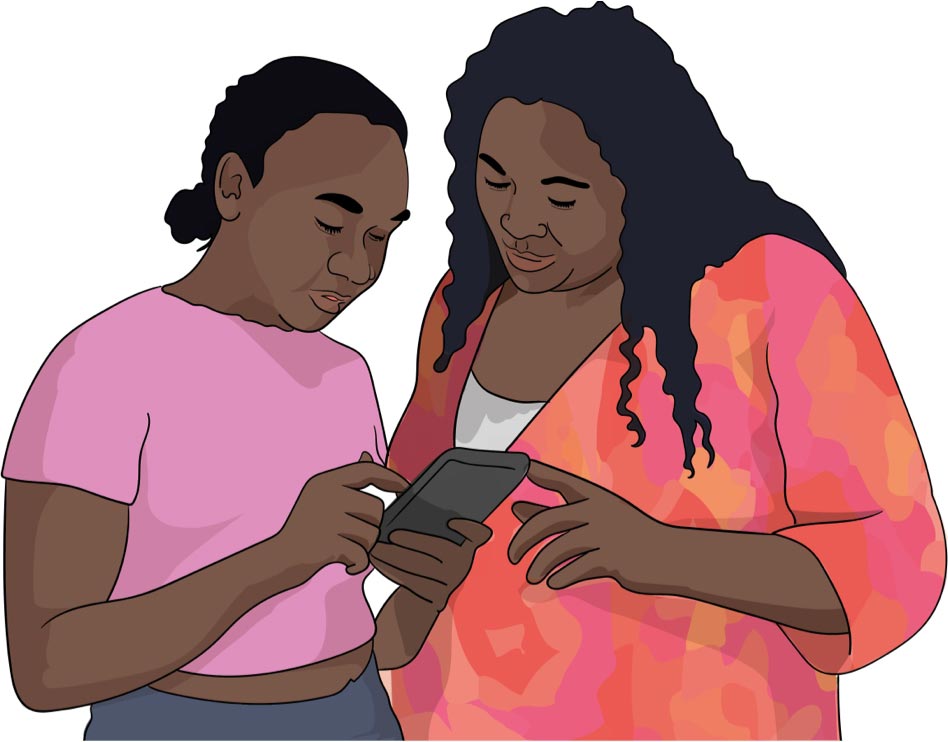- Home
- Cancer in our Mob
- Why did I get cancer?
- Genes and cancer

Genes and cancer
Everybody has genes in our body. Genes are tiny parts of us that are found inside every human cell. Genes are the instructions inside each of our cells that control how we look and how our body works.
Our genes carry information that gets passed from one generation of the family to the next. Genes can make our hair turn out to be dark or light and affect the colour of our eyes.
As we go through life, genes can play a part in deciding how healthy we are, and how likely it is that we might get cancer. Other things matter too, like healthy lifestyle, the way we live our life, our deadly choices. But genes play a part.
You might be wondering about whether to get some genetic tests done. If you’re thinking about that, do it in person at a clinic. Genetic testing over the internet may not be safe or reliable.
Here are some steps to take:
Step 1: Yarn with someone who knows
Yarning with your doctor, nurse or Aboriginal and/or Torres Strait Islander health worker can help you get started on deciding about genetic testing.
They might want to know a bit of your family cancer story, what worries you have, and any questions you want to ask. It’s okay to take someone with you to these appointments for support and to gather information so you can make a decision about what to do next.
Your doctor, nurse or Aboriginal and/or Torres Strait Islander health worker might be able to help you themselves, or they might suggest for you to go to a Family Cancer Clinic.
Step 2: Family Cancer Clinic
Family Cancer Clinics have special skills about cancers that might run in families or bloodlines. They are used to talking to people and answering questions about cancer and genes.
Your doctor might send you, or you can contact the clinic and yarn with them about making an appointment. View all Family Cancer Clinics in Australia.
Step 3: Genetic Testing
Genetic testing is a test of the person’s genes to check if there are any changes that can be passed to blood relatives. For some people, the Family Cancer Clinic might suggest that you might have a test if you have a family history of some types of cancer that may be caused by an altered gene. It is usually done as a blood test.
Even if you have been referred to a Family Cancer Clinic, you may not need genetic testing.
It’s ok to take time to think about having genetic testing. Talk to other mob who have been through it, and get more information. Read more about genetic testing and share it with your family.
Life with and after cancer
FIND OUT MORE
Where can I get help and support?
FIND OUT MORE



